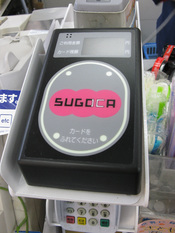EXECUTIVE SUMMARY
7-Eleven, Inc. is the world's largest operator, franchiser and licensor of convenience stores with more than 24,000 units worldwide. The company name was changed from The Southland Corporation after approval by shareholders in 1999.
Japan plays a central role in Seven-Eleven's network of 24,677 stores in 19 countries and territories, and on Aug 31 2003 the number of outlets of Seven-Eleven in Japan passed 10,000. This is the first case of a retailer possessing more than 10,000 stores within a single country anywhere in the world.
IYG Holding Company, a wholly owned subsidiary of Ito-Yokado Co., Ltd., and Seven-Eleven Japan Co., Ltd., has owned a majority interest in 7-Eleven, Inc. since 1991. Seven-Eleven Japan operates more than 9,400 7-Eleven stores in Japan and Hawaii under an area license agreement with 7-Eleven, Inc. 7-Eleven, Inc. stock is traded publicly on NYSE under the symbol SE.
The breakthrough came in the 30th year of business for this company, which opened its first store in Tokyo's Toyosu district in 1974 after introducing the business model from the United States.
The company has enjoyed expanding profits in every one of the 23 years since it became publicly listed in 1979, and it has grown into one of the most profitable firms in Japan's retailing industry.
CASE BACKGROUND
A successful story of implementing technology
One reason for Seven-Eleven's sparkling performance is its cautious management.
Toshifumi Suzuki, Seven-Eleven's chairman, says that he would stop opening new stores if sales at existing ones declined sharply. His caution is reflected in Seven-Eleven's finances, which are largely debt-free.
Yet solid management is not the only contributor to Seven-Eleven's success. The chain's other distinction lies in its deft use of electronics. It pioneered many techniques for using the Internet that are still ahead of the curve.


